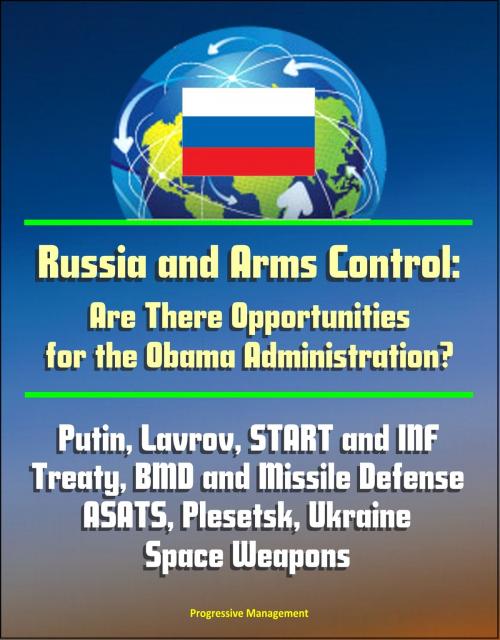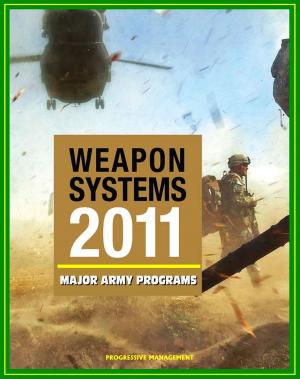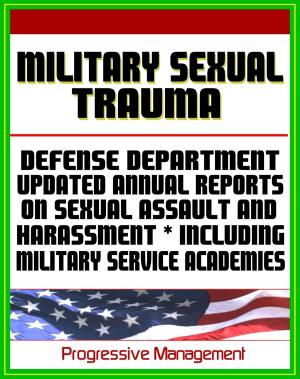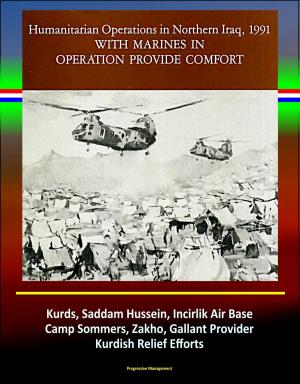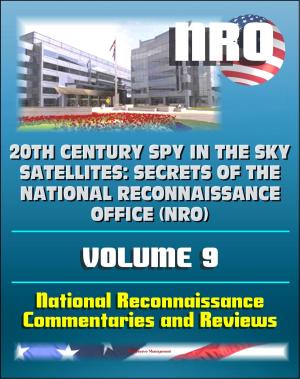Russia and Arms Control: Are There Opportunities for the Obama Administration? Putin, Lavrov, START and INF Treaty, BMD and Missile Defense, ASATS, Plesetsk, Ukraine, Space Weapons
Nonfiction, History, Military, Nuclear Warfare, Asian, Russia| Author: | Progressive Management | ISBN: | 9781310286513 |
| Publisher: | Progressive Management | Publication: | March 15, 2014 |
| Imprint: | Smashwords Edition | Language: | English |
| Author: | Progressive Management |
| ISBN: | 9781310286513 |
| Publisher: | Progressive Management |
| Publication: | March 15, 2014 |
| Imprint: | Smashwords Edition |
| Language: | English |
As the Obama administration took office, Russo-American relations were generally acknowledged to be at an impasse. Arms control issues feature prominently in that conflicted agenda. Indeed, as of September 2008, the Bush administration was contemplating not just a break in arms talks but actual sanctions, and allowed the bilateral civil nuclear treaty with Russia to die in the Senate rather than go forward for confirmation. Russian spokesmen make clear their belief that American concessions on key elements of arms control issues like missile defenses in Europe are a touchstone for the relationship and a condition of any further progress towards genuine dialogue.
This impasse poses several risks beyond the obvious one of a breakdown in U.S.-Russian relations and the easily foreseeable bilateral consequences thereof. But those are by no means the only reasons for concern regarding the arms control agenda. Since the outbreak of the Russo-Georgian war in August 2008, both sides have further hardened positions and raised tensions apart from the war itself and Russia's quite evident refusal to abide by its own cease-fire terms. Nevertheless, and for better or worse, arms control and its agenda will remain at the heart of the bilateral Russo-American relationship for a long time. Arms control and disarmament issues are quintessentially political as well as military issues that are among the most critical components of the bilateral relationship and regional security in both Europe and Asia. For these reasons, neither the political nor the military aspect can be divorced from the other. And for these same reasons, we cannot refuse to participate in the bilateral effort to resolve those issues.
Even before the Russian invasion of Georgia in August 2008, U.S.-Russian relations were reaching an impasse. Matters have only grown worse since then as Washington has stopped all bilateral military cooperation with Moscow, and it is difficult to imagine either Washington or the North Atlantic Treaty Organization (NATO) entering into arms control talks with Russia before the end of the George W. Bush administration. Indeed, as of September 2008, the administration is contemplating not just a break in arms talks but actual sanctions, and has allowed the bilateral civil nuclear treaty with Russia to die in the Senate rather than go forward for confirmation. U.S. Ambassador to Russia John Beyerle recently admitted that this is not a propitious time for bilateral nuclear cooperation and explicitly tied its resumption to Russian policy in Georgia. Similarly, Senator Richard Lugar (R-IN) and former Senator Sam Nunn (D-GA), who authored the Comprehensive Threat Reduction Program (CTR) to ensure the removal of unsafe nuclear materials and weapons from Russian arsenals, have expressed their concern that continuation of this vital program may now be in danger due to the deterioration in Russo-American relations. But those are by no means the only reasons for concern regarding the arms control agenda. Since August 8 when the war broke out, the following developments on both sides have further hardened positions and raised tensions apart from the war itself and Russia's quite evident refusal to abide by its own cease-fire terms.
Introduction * Understanding the Current Impasse * Russia's Newly Announced
Positions * Missile Defenses * START and Russia's Strategic Challenges
As the Obama administration took office, Russo-American relations were generally acknowledged to be at an impasse. Arms control issues feature prominently in that conflicted agenda. Indeed, as of September 2008, the Bush administration was contemplating not just a break in arms talks but actual sanctions, and allowed the bilateral civil nuclear treaty with Russia to die in the Senate rather than go forward for confirmation. Russian spokesmen make clear their belief that American concessions on key elements of arms control issues like missile defenses in Europe are a touchstone for the relationship and a condition of any further progress towards genuine dialogue.
This impasse poses several risks beyond the obvious one of a breakdown in U.S.-Russian relations and the easily foreseeable bilateral consequences thereof. But those are by no means the only reasons for concern regarding the arms control agenda. Since the outbreak of the Russo-Georgian war in August 2008, both sides have further hardened positions and raised tensions apart from the war itself and Russia's quite evident refusal to abide by its own cease-fire terms. Nevertheless, and for better or worse, arms control and its agenda will remain at the heart of the bilateral Russo-American relationship for a long time. Arms control and disarmament issues are quintessentially political as well as military issues that are among the most critical components of the bilateral relationship and regional security in both Europe and Asia. For these reasons, neither the political nor the military aspect can be divorced from the other. And for these same reasons, we cannot refuse to participate in the bilateral effort to resolve those issues.
Even before the Russian invasion of Georgia in August 2008, U.S.-Russian relations were reaching an impasse. Matters have only grown worse since then as Washington has stopped all bilateral military cooperation with Moscow, and it is difficult to imagine either Washington or the North Atlantic Treaty Organization (NATO) entering into arms control talks with Russia before the end of the George W. Bush administration. Indeed, as of September 2008, the administration is contemplating not just a break in arms talks but actual sanctions, and has allowed the bilateral civil nuclear treaty with Russia to die in the Senate rather than go forward for confirmation. U.S. Ambassador to Russia John Beyerle recently admitted that this is not a propitious time for bilateral nuclear cooperation and explicitly tied its resumption to Russian policy in Georgia. Similarly, Senator Richard Lugar (R-IN) and former Senator Sam Nunn (D-GA), who authored the Comprehensive Threat Reduction Program (CTR) to ensure the removal of unsafe nuclear materials and weapons from Russian arsenals, have expressed their concern that continuation of this vital program may now be in danger due to the deterioration in Russo-American relations. But those are by no means the only reasons for concern regarding the arms control agenda. Since August 8 when the war broke out, the following developments on both sides have further hardened positions and raised tensions apart from the war itself and Russia's quite evident refusal to abide by its own cease-fire terms.
Introduction * Understanding the Current Impasse * Russia's Newly Announced
Positions * Missile Defenses * START and Russia's Strategic Challenges
